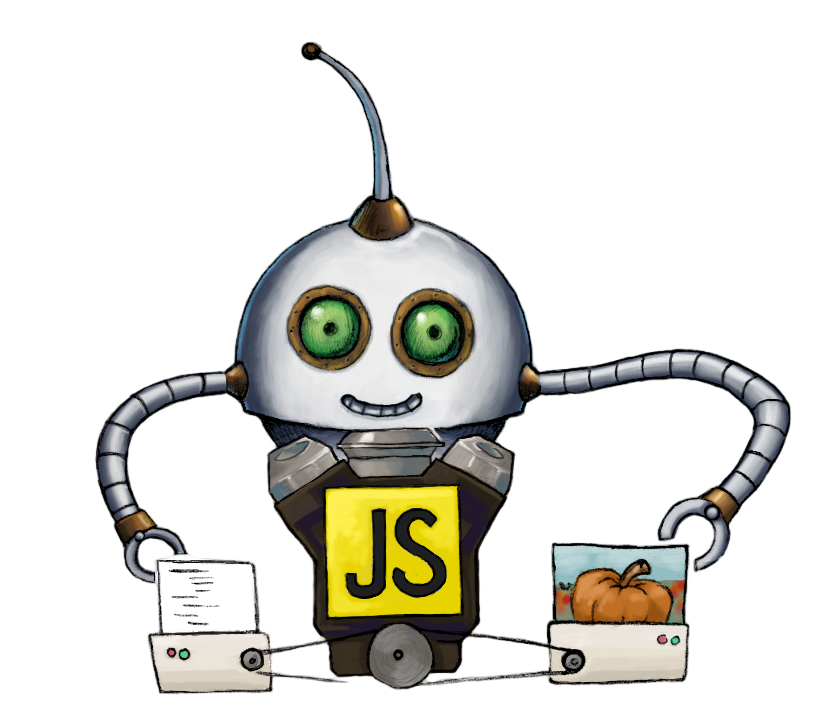
Run scripts in Assemblies
🤖/script/run runs scripts in Assemblies.
This Robot allows you to run arbitrary JavaScript as part of the Assembly
execution process. The Robot is invoked automatically when there are Assembly
Instructions containing ${...}:
{
"robot": "/image/resize",
"width": "${Math.max(file.meta.width, file.meta.height)}"
}
You can also invoke this Robot directly, leaving out the ${...}:
{
"robot": "/script/run",
"script": "Math.max(file.meta.width, file.meta.height)"
}
When accessing arrays, the syntax is the same as in any JavaScript program:
{
"robot": "/image/resize",
"width": "${file.meta.faces[0].width * 2}"
}
Compared to only accessing an Assembly Variable:
{
"robot": "/image/resize",
"width": "${file.meta.faces[0].width}"
}
For more information, see Dynamic Evaluation.
Parameters
output_metaRecord<string, boolean> | boolean | Array<string>Allows you to specify a set of metadata that is more expensive on CPU power to calculate, and thus is disabled by default to keep your Assemblies processing fast.
For images, you can add
"has_transparency": truein this object to extract if the image contains transparent parts and"dominant_colors": trueto extract an array of hexadecimal color codes from the image.For videos, you can add the
"colorspace: true"parameter to extract the colorspace of the output video.For audio, you can add
"mean_volume": trueto get a single value representing the mean average volume of the audio file.You can also set this to
falseto skip metadata extraction and speed up transcoding.resultboolean(default:false)Whether the results of this Step should be present in the Assembly Status JSON
queuebatchSetting the queue to 'batch', manually downgrades the priority of jobs for this step to avoid consuming Priority job slots for jobs that don't need zero queue waiting times
force_acceptboolean(default:false)Force a Robot to accept a file type it would have ignored.
By default, Robots ignore files they are not familiar with. 🤖/video/encode, for example, will happily ignore input images.
With the
force_acceptparameter set totrue, you can force Robots to accept all files thrown at them. This will typically lead to errors and should only be used for debugging or combatting edge cases.ignore_errorsboolean | Array<meta | execute>(default:[])Ignore errors during specific phases of processing.
Setting this to
["meta"]will cause the Robot to ignore errors during metadata extraction.Setting this to
["execute"]will cause the Robot to ignore errors during the main execution phase.Setting this to
trueis equivalent to["meta", "execute"]and will ignore errors in both phases.usestring | Array<string> | Array<object> | objectSpecifies which Step(s) to use as input.
- You can pick any names for Steps except
":original"(reserved for user uploads handled by Transloadit) - You can provide several Steps as input with arrays:
{ "use": [ ":original", "encoded", "resized" ] }
Tip
That's likely all you need to know about
use, but you can view Advanced use cases.- You can pick any names for Steps except
script— requiredstringA string of JavaScript to evaluate. It has access to all JavaScript features available in a modern browser environment.
The script is expected to return a
JSON.stringify-able value in the same tick, so noawaitor callbacks are allowed (yet).If the script does not finish within 1000ms it times out with an error. The return value or error is exported as
file.meta.result. If there was an error,file.meta.isErroristrue. Note that the Assembly will not crash in this case. If you need it to crash, you can check this value with a 🤖/file/filter Step, settingerror_on_declinetotrue.You can check whether evaluating this script was free by inspecting
file.meta.isFree. It is recommended to do this during development as to not see sudden unexpected costs in production.